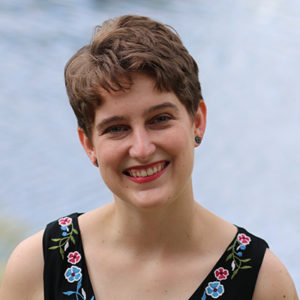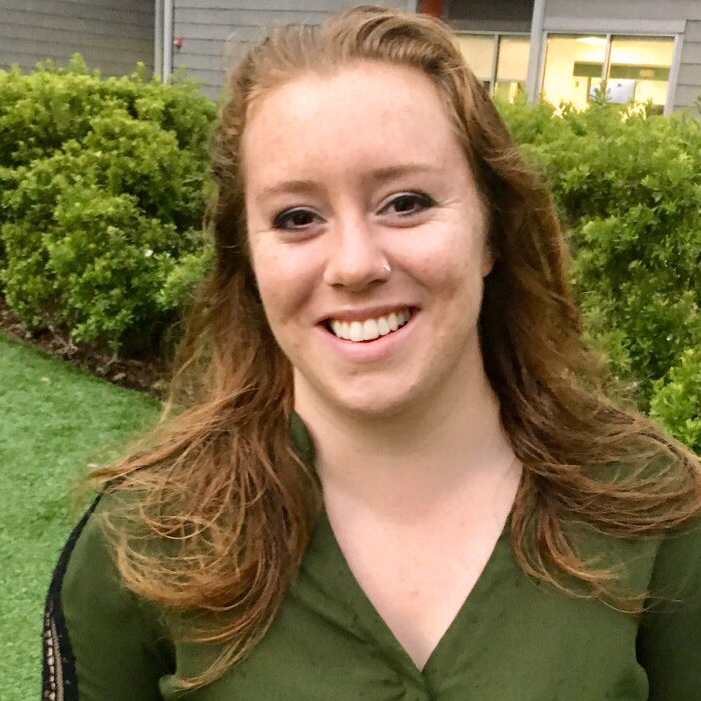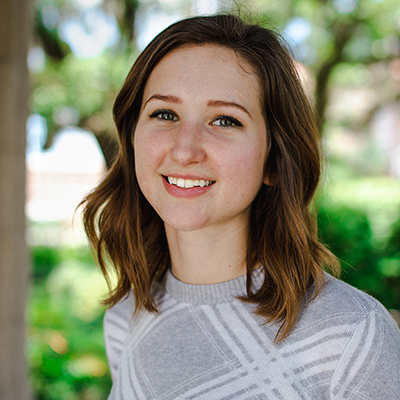Spring Graduate Student Conference Papers at Home and On the Road
 In February, 2nd-year MA Abigail Youngblood presented at the Southeastern Commission for the Study of Religion (SECSOR) a the University of Georgia. SECSOR brings together members of the American Academy of Religion and the Society of Biblical Literature within the southeastern United States. She presented along with graduate students from FSU’s Department of Religion. Abbie presented her paper “Deconstructing the Abject: The Fragmented Body as Reliquary in Andres Serrano’s The Morgue (1992).” Her presentation included an analysis oh the photographs in Andres Serrano’s series and considered the medieval and modern binaries that define them, focusing specifically on abject theory and the role of medieval reliquary traditions.
In February, 2nd-year MA Abigail Youngblood presented at the Southeastern Commission for the Study of Religion (SECSOR) a the University of Georgia. SECSOR brings together members of the American Academy of Religion and the Society of Biblical Literature within the southeastern United States. She presented along with graduate students from FSU’s Department of Religion. Abbie presented her paper “Deconstructing the Abject: The Fragmented Body as Reliquary in Andres Serrano’s The Morgue (1992).” Her presentation included an analysis oh the photographs in Andres Serrano’s series and considered the medieval and modern binaries that define them, focusing specifically on abject theory and the role of medieval reliquary traditions.

Doctoral student Sarah Mathiesen will present “Recognizing Armenia: The Workshop of Yılanlı Kilise and the Ihlara Group” at the two-day workshop “Studying East of Byzantium VI: The State of the Field” at Tufts University in March. Sarah’s historiographical paper springs from her dissertation topic and questions previous scholarly assertions of points of influence on the iconography in Yılanlı, instead exploring Armenian and Georgian art and rock-cut architecture as sources.
In February, Sarah co-chaired a panel in the 2020 Florida State University Critical Thinking Symposium with Rebekah Franklin, a doctoral student of musicology. The panel, “Digital Literacy: Impacts on Teaching and Research,” was sponsored by the Program for Instructional Excellence (PIE), for which Sarah is a representative and liaison for Art History. The presentation featured a multidisciplinary group of graduate students and faculty, including Art History doctoral candidate Britt Hunter. Britt, who holds a master’s degree in Library and Information Science, was invited to join the panel to discuss her use of digital facsimiles and online geographical data visualizations in her research, and her training in the Text Encoding Initiative through the collaborative Digital Editing and Medieval Manuscript Roll project (DEMMR) hosted by Yale University’s Beinecke Library.
 Digital literacy, as defined by the American Library Association, is “the ability to use information and communication technologies to find, evaluate, create, and communicate information, requiring both cognitive and technical skills.” One of the most successful components of the panel was the presentation of case studies – that is, assignments or tutorials that address critical thinking and digital literacy. Sarah and Britt collaborated to present a version of an in-class assignment that they have experimented with in their Art History Survey I tutorials for the past two semesters. Originally conceived of by Sarah as a participation activity, this assignment involves having students debate whether the Parthenon Marbles should remain in the British Museum or be returned to Athens per Greece’s requests. Supported by class lectures and course materials, students monitor the debate in news articles and popular media such as podcasts and videos, evaluate the validity of the sources, and craft their own persuasive arguments. Sarah and Britt believe that art history is the ideal discipline for teaching critical thinking, and were delighted to represent the department at this year’s Critical Thinking Symposium.
Digital literacy, as defined by the American Library Association, is “the ability to use information and communication technologies to find, evaluate, create, and communicate information, requiring both cognitive and technical skills.” One of the most successful components of the panel was the presentation of case studies – that is, assignments or tutorials that address critical thinking and digital literacy. Sarah and Britt collaborated to present a version of an in-class assignment that they have experimented with in their Art History Survey I tutorials for the past two semesters. Originally conceived of by Sarah as a participation activity, this assignment involves having students debate whether the Parthenon Marbles should remain in the British Museum or be returned to Athens per Greece’s requests. Supported by class lectures and course materials, students monitor the debate in news articles and popular media such as podcasts and videos, evaluate the validity of the sources, and craft their own persuasive arguments. Sarah and Britt believe that art history is the ideal discipline for teaching critical thinking, and were delighted to represent the department at this year’s Critical Thinking Symposium.
Looking for ways to share your research? Be sure to check the FSU Art History Opportunity Blog. Your colleagues and professors submit posts about conferences, internships, jobs, and other opportunities for Art History students. You can also receive it by email every week during the spring and fall semesters; Click here to sign up.